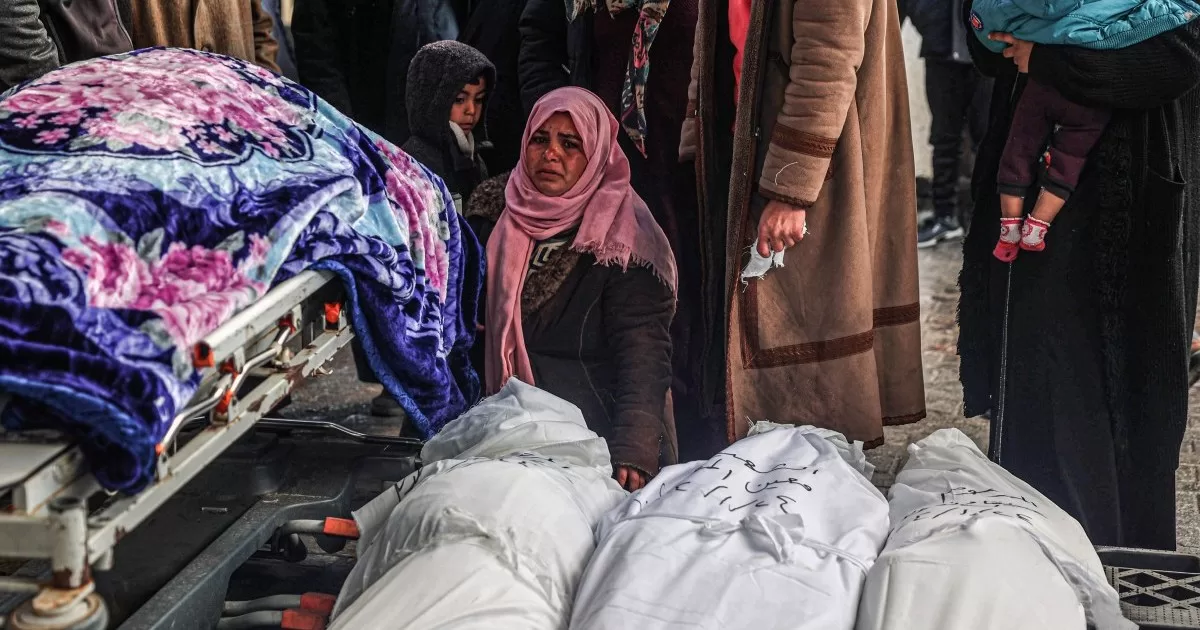CIA, Mossad heads to meet in Europe with Qatar officials to broker second captives-for-prisoners exchange and truce.
The CIA’s William Burns and Mossad chief David Barnea will meet with Qatari Prime Minister and Foreign Minister Sheikh Mohammed bin Abdulrahman Al Thani in Europe over the weekend, sources informed on the talks told Al Jazeera.
US President Joe Biden’s administration has been actively working to secure the release of about 130 captives still being held by Hamas and other Palestinian armed groups.
Any new agreement between Israel and Hamas would also aim to bring about the longest cessation of hostilities since the war erupted in October, officials told The Washington Post, which first reported Burns’s travel.
Egypt’s intelligence chief Abbas Kamel will also join the meeting.
The key mediators are attempting to narrow the differences between Israel and Hamas on the duration of the truce and the number of captives to be released in exchange for Palestinians detained by Israel, according to Al Jazeera sources.
Qatar, along with Egypt, has engaged in negotiations to mediate a truce in Gaza and ensure the entry of humanitarian aid into the besieged enclave. In November, it helped secure a weeklong pause in fighting in which more than 100 captives were released in exchange for Palestinian prisoners held in Israeli jails.
White House national security spokesperson John Kirby told reporters that the CIA chief has been “involved in helping us with the hostage deal that was in place and trying to help us pursue another one”.
US ally Israel has vowed to eradicate Hamas, unleashing a torrent of attacks by air, land and sea that have flattened most of the Gaza Strip and killed at least 26,083 people and injured more than 64,000, Palestinian health officials say.
Al Jazeera’s Hoda Abdel-Hamid, reporting from Tel Aviv on leaks in Israeli media about a two-month ceasefire, said serious disagreements remain over any prospective Israel-Hamas deal.
“The Israeli public is not given the full picture, because there are still many sticking points. Hamas has said over and over that it won’t agree to any deal unless it leads to a permanent ceasefire and an end to the war,” Abdel-Hamid said over the reported agreement that could see one Israeli captive freed in exchange for 100 Palestinian detainees taken from the occupied West Bank and Gaza.
Israel’s Prime Minister Benjamin Netanyahu has ruled out any political settlement that would lead to the formation of a Palestinian state, and ending the war until Hamas is eradicated.
Ceasefire main ‘sticking point’
Israel has proposed a 60-day pause in the fighting during which more than 100 captives would be released in phases, beginning with civilian women and children, the Reuters news agency reported.
That would be followed by the release of civilian men, female soldiers and the remains of captives who died after being abducted by Hamas, according to the source quoted by Reuters.
Such a plan would be at odds with Hamas’s last proposal demanding an end to the war, international guarantees that it would not start anew and the release of all detainees held by Israel, including those who participated in its October 7 attack on Israel.
Al Jazeera’s Stefanie Dekker, reporting from occupied East Jerusalem, said that while a permanent ceasefire was a “real sticking point”, news about the meeting suggests there seems to be some momentum towards reaching an agreement on other issues.
“This is the first time that there seems to be some hope that possibly both sides can come to some form of understanding since the ceasefire collapsed at the beginning of December,” she added.
Dekker said Netanyahu was under a lot of pressure domestically to do more to bring the captives home, including pressure from their families.
“The message from the families is very simple: Strike a deal. Whatever it takes,” she added.
